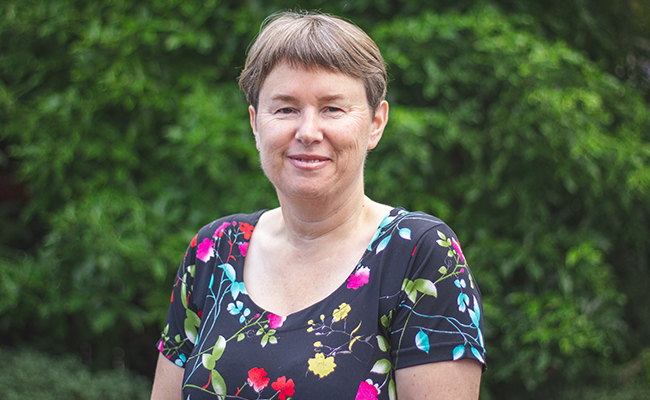
Professor Pauline Norris received $1.3 million in a 2020 Health Research Council grant.
Professor Pauline Norris cannot sit quietly by and watch people struggle to access medicine in New Zealand.
“I agree with the World Health Organisation that access to medicines is a fundamental human right. Often medicines are a relatively cheap thing that a health system can provide to help prevent and manage illness, so I think we should be making it simple for people to access appropriate medicines.
“In previous research I have spoken to many people who struggle to afford their medicines and have to choose between medicines and other essential things like food. Many regularly go without medicines they need, suffer unnecessarily, and sometimes end up in hospital.
“I can't listen to these stories and then ignore them, I have to try to do what I can to improve their situation.”
And that is what she is doing with an almost $1.3 million 2020 Health Research Council grant.
Focusing on Māori, Pacific, refugee households and people living in poverty, the study is a collaboration between researchers and drug funding agency Pharmac, and will follow a number of households over a year to explore their interactions with the healthcare system and the barriers to accessing and using medicines.
“I think most people know that the health system isn't always easy to use, and sometimes people experience difficulties in getting access to care that they need. Previous research shows that Māori and Pacific people have lower rates of use of many medicines, and this can lead to health problems not being managed well.
“The research will explore problems people have with getting medicines they need, so that Pharmac and other organisations can make changes to reduce these problems.”
Access to medicines has been a research focus for Professor Norris for “decades”.
“Poor access to medicines is one of the reasons why some groups have much poorer health than others, so understanding how to improve this is really important to ensuring the health system is more equitable, and that everyone in New Zealand has the best chance for a healthy life.”
“This is a problem for many people but may be particularly the case for refugees who may have come from a place with a very different health system. There is research exploring some of these barriers already, but our study will look at how the barriers interact, which ones it would be possible to reduce, and how.”
Affordability is a common barrier, she says.
“Many people struggle to pay for primary care; GP charges and prescription charges. This is particularly common for Māori and Pacific people and people who live in more deprived parts of NZ.
“The standard $5 charge doesn't seem like much to many people, but if you have to take a lot of medicines and your income is low it can be a really problem.”
Other common barriers include people feeling uncomfortable with their healthcare provider, experiencing racism, or a lack of understanding about how the health system works, such as repeat prescriptions.
“This is a problem for many people but may be particularly the case for refugees who may have come from a place with a very different health system. There is research exploring some of these barriers already, but our study will look at how the barriers interact, which ones it would be possible to reduce, and how.”
In the same HRC funding round, Professor Norris was also granted $30,000 for a project measuring Turanga Health's impact on food security and food sovereignty, and she is also currently working on a project looking what difference the $5 co-payment makes to people.
“We are in the middle of that project at the moment, so I am going to be really busy for a while!”.
Professor Norris has been in Dunedin since 2001 when she started as a Senior Lecturer at the School of Pharmacy. In 2018 she moved to the Centre for Pacific Health in the Division of Health Sciences.
While she has been the recipient of “several” HRC grants in that time, she is still immensely proud to have been successful again this year.
“I'm really pleased and very excited to get started on the project.
“It's an opportunity to do further research with a great team of experienced and emerging researchers, to collaborate closely with Pharmac to inform their policies and programmes and it's part of Otago's on-going success in attracting funding for health delivery research.”